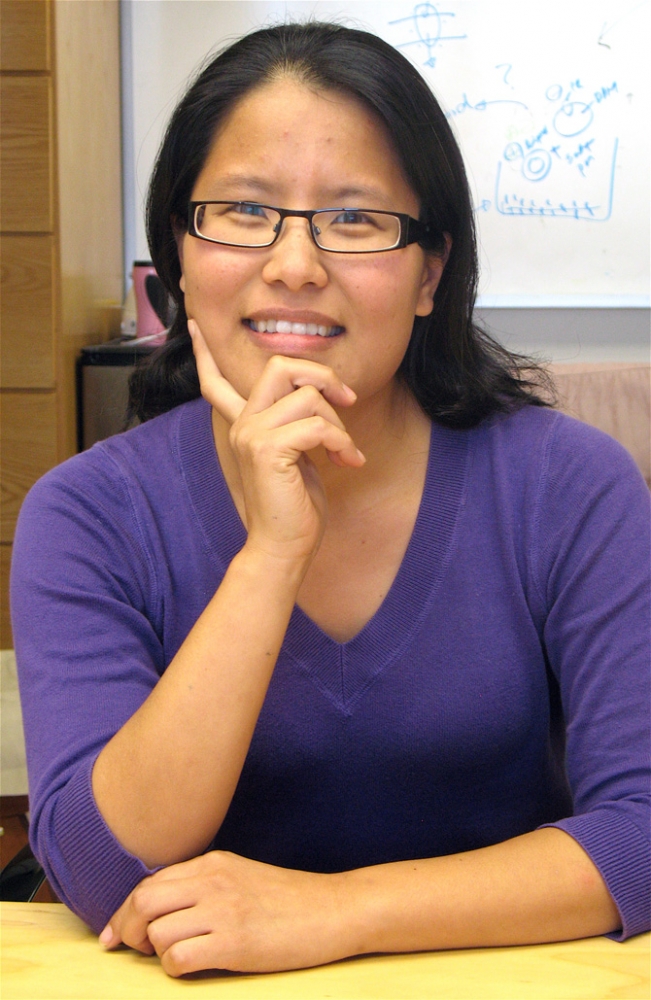
Songi Han, assistant professor in the Department of Chemistry and Biochemistry at the University of California, Santa Barbara, has been awarded a prestigious Packard Foundation Fellowship for Science and Engineering for the year 2008.
This year, the foundation received 99 nominations from 50 invited universities. After careful review, 20 Fellows were selected. The Fellowship of $875,000 will be paid over five years beginning in November 2008.
The funding goes to support Professor Han's research in developing new magnetic resonance methods with enhanced sensitivity and imaging capability. The foundation explained that the funding will help with Han's research in the development of state-of-the-art biophysical instrumentation, and in addressing questions such as what drives Alzheimer's-related proteins to aggregate as brain deposits, and how proteins fuel marine bacteria using sunlight.
"Songi Han winning the Packard Award is one of the most thoroughly appropriate and predictable events I have witnessed in our department in the last five years," said Alec Wodtke, chair of UCSB's Department of Chemistry and Biochemistry. "Her success at UCSB is a testimony to her creativity and potential, which are both enormous. She likewise demonstrates how successful young professors can be in establishing flourishing lives at UCSB."
In congratulating Han, Chancellor Henry T. Yang called the award a "wonderful reflection of her innovative research."
"The Fellowship Program provides significant funding for the fellows to advance their research to new levels at a critical period early in their careers," said Lynn Orr, who is a Packard Foundation trustee, chairman of the Fellowship Advisory Panel, and the Keleen and Carlton Beal Professor at Stanford University. "These talented scientists will use this funding to find innovative solutions to major scientific challenges."
The Packard Foundation Fellowship Program is in its 20th year and has awarded 424 fellowships, totaling approximately $260 million, to faculty members at 50 top national universities. It is among the nation's largest nongovernmental programs designed to support unusually creative researchers early in their careers.
The Fellowship Program funds research in a broad range of disciplines, including physics, chemistry, mathematics, biology, astronomy, computer science, Earth science, and all branches of engineering. The new class of fellows joins a distinguished group of researchers working across science and engineering disciplines, many of whom have gone on to win other distinguished awards, including MacArthur Fellowships and the Nobel Prize.



